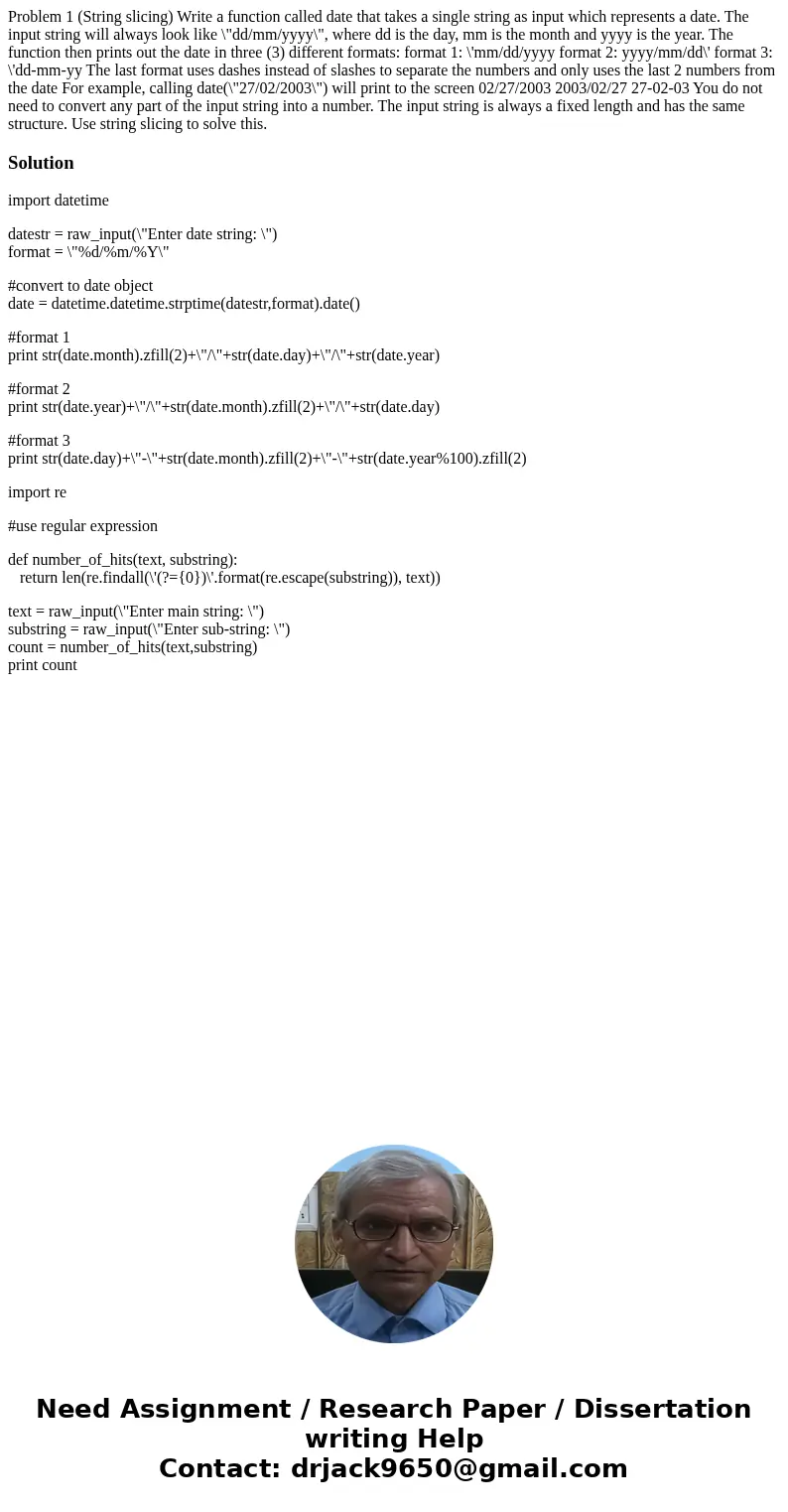Problem 1 String slicing Write a function called date that t
Problem 1 (String slicing) Write a function called date that takes a single string as input which represents a date. The input string will always look like \"dd/mm/yyyy\", where dd is the day, mm is the month and yyyy is the year. The function then prints out the date in three (3) different formats: format 1: \'mm/dd/yyyy format 2: yyyy/mm/dd\' format 3: \'dd-mm-yy The last format uses dashes instead of slashes to separate the numbers and only uses the last 2 numbers from the date For example, calling date(\"27/02/2003\") will print to the screen 02/27/2003 2003/02/27 27-02-03 You do not need to convert any part of the input string into a number. The input string is always a fixed length and has the same structure. Use string slicing to solve this. 
Solution
import datetime
datestr = raw_input(\"Enter date string: \")
format = \"%d/%m/%Y\"
#convert to date object
date = datetime.datetime.strptime(datestr,format).date()
#format 1
print str(date.month).zfill(2)+\"/\"+str(date.day)+\"/\"+str(date.year)
#format 2
print str(date.year)+\"/\"+str(date.month).zfill(2)+\"/\"+str(date.day)
#format 3
print str(date.day)+\"-\"+str(date.month).zfill(2)+\"-\"+str(date.year%100).zfill(2)
import re
#use regular expression
def number_of_hits(text, substring):
return len(re.findall(\'(?={0})\'.format(re.escape(substring)), text))
text = raw_input(\"Enter main string: \")
substring = raw_input(\"Enter sub-string: \")
count = number_of_hits(text,substring)
print count

 Homework Sourse
Homework Sourse